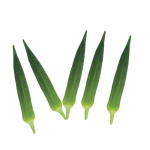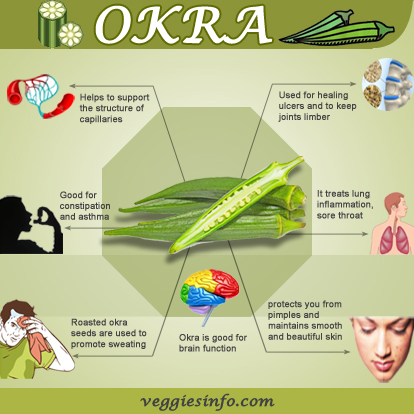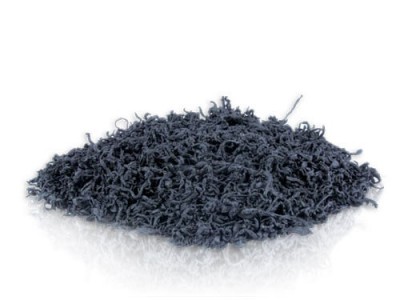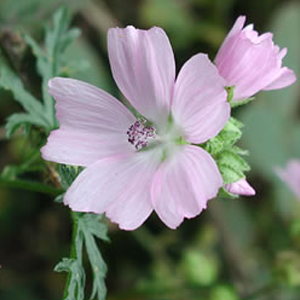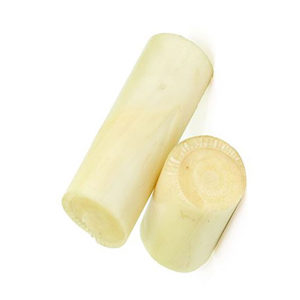

Okra : Health Values and Nutrition Information
About Okra
Scientifically known as Abelmoschus esculentus; Okra is a perennial flower giving plant consumed and found in the tropical countries. It consists of dark green colour pods with small hairs on its exterior and seed inside it. It bears flowers that look similar to that of a hibiscus. The best season to plant okra is during warm springs and summers when the soil is rich and fertile as it does not favor cold weather. These plants are often acts as an attraction to many ants, cabbage worms and other pest. Care needs to be taken of the plantation to avoid attacks by pest. Okra is commonly known as lady’s finger in some parts of the world. In India people call it bhindi.
Okra Nutrition Facts
- They are rich sources of dietary fiber, minerals, and vitamins.
- It contains vitamins of the category A, Thiamin, B6, C, folic acid, riboflavin, calcium, zinc.
[tribulant_slideshow gallery_id="21"]
Okra Benefits
- Provides a temporary protective coating for the digestive tract.
- Used for healing ulcers and to keep joints limber.
- Okra treats lung inflammation, sore throat, and irritable bowel syndrome.
- Good for constipation and asthma.
- Good in normalizing the blood sugar and cholesterol level
- Helps to support the structure of capillaries.
- protects you from pimples and maintains smooth and beautiful skin.
- Okra is Good For Brain Function.
- Roasted okra seeds are used to promote sweating.
| Principle | Nutrient Value | Percentage of RDA |
|---|---|---|
| Energy | 33 Kcal | 1.5% |
| Carbohydrates | 7.03 g | 5.4% |
| Protein | 2.0 g | 4% |
| Total Fat | 0.1 g | 0.5% |
| Cholesterol | 0 mg | 0% |
| Dietary Fiber | 9% | 3.2 g |
| Vitamins | ||
| Folates | 88 µg | 22% |
| Niacin | 1.000 mg | 6% |
| Pantothenic acid | 0.245 mg | 5% |
| Pyridoxine | 0.215 mg | 16.5% |
| Riboflavin | 0.060 mg | 4.5% |
| Thiamin | 0.200 mg | 17% |
| Vitamin C | 21.1 mg | 36% |
| Vitamin A | 375 IU | 12.5% |
| Vitamin E | 0.36 mg | 2.5% |
| Vitamin K | 53 µg | 44% |
| Electrolytes | ||
| Sodium | 8 mg | 0.5% |
| Potassium | 303 mg | 6% |
| Minerals | ||
| Calcium | 81 mg | 8% |
| Copper | 0.094 mg | 10% |
| Iron | 0.80 mg | 10% |
| Magnesium | 57 mg | 14% |
| Manganese | 0.990 mg | 43% |
| Phosphorus | 63 mg | 9% |
| Selenium | 0.7 µg | 1% |
| Zinc | 0.60 mg | 5.5% |
| Phyto-nutrients | ||
| Carotene-ß | 225 µg | — |
| Crypto- xanthin-ß | 0 µg | — |
| Lutein- zeaxanthin | 516 µg | — |
Okra is a low energy dense vegetable; this means that one cup of okra contains only 25 Calories. The nature of density of the food depends on the number of calories it has. It is labelled to be a low energy density food then it means it has low calorie content if it is a high on calorie food then it is known as high energy density food. The energy is equivalent to the calorie content of the food. Being the power house of nutrients; Okra is a vegetable that one cannot over look. Rich in dietary fibre okra helps in smooth functioning of the bowel movements and prevents any kind of digestive disorder .A compound called mucilage present in okra aids in breaking down the food in digestible material that helps in unclogging of guts and prevents constipation. Vitamin A present in okra helps in restoring clarity of vision and gives a healthy eye sight. Zea-xanthin, beta- carotene, xanthin and luetin are compounds rich in anti oxidant and anti cancer properties that forms a mucous in the mouth preventing oral cancer. Chain smokers should indulge in more okra related food in order to keep mouth cancer at bay. New mothers are often recommended to eat more of folate rich food as it helps in nourishing the mother and the new born and prevents neural tube and spinal cord defects. It also houses vitamin C and anti-oxidant properties that help in building immunity in the body preventing many chronic diseases. Vitamin K and vitamin B6 present in okra helps in strengthening bones and prevents osteoporosis.
How To Enjoy Okra
Okra is vegetable that changes its texture according to the way one cooks it. Over cooking it may lead to a gooey textured okra where as deep frying it gives a crispy crunchy texture. Okra in Africa is a part of their soups and Africans like their okras as a main part of their meal.
In India okra is cooked into many different delicacies depending on the region ; people belonging to southern parts of India mainly Tamil nadu and Andhra Pradesh add okra to their sambar, they fry it with coconut and make pooriyal out of it which is an accompaniment with rice. Shahi Korma, a mix vegetable gravy has okra in it which is eaten with Indian breads.

